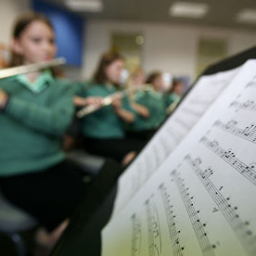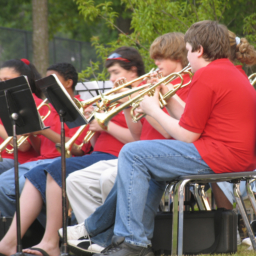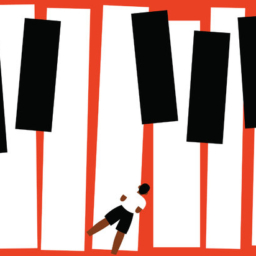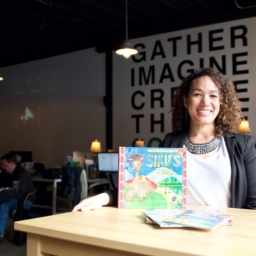We have all heard that music has positive effects on babies and children as they develop. But what exactly does this mean? And how can parents intentionally use music to aid their child’s brain development, even if they have no experience with playing music?
I will never forget the day I was sitting on the balcony quietly reading a book and out of nowhere my neighbor’s large dog began to bark. The little person inside my tummy jump! The sound had genuinely surprised her and she had a physical reaction to it. This was the first time I got interested in the sonic environment that I was providing for her. If the dog made her jump, what about that loud concert we had gone to last week? What about those hormones that affected me yesterday when I burst into tears and cried about not feeling ready to be a mom?! It immediately became clear to me that I was responsible for the environment that my child entered into.
It turns out that babies are not the blank slates that we once through them to be. Research shows that babies begin learning while still in the womb, using cues from the sounds they hear and the hormones they experience to prepare for the outside world.
Plasticity in the brain is at it’s height in early development. The reason babies and children learn new things so quickly is that their brains are more supple, becoming “hard-wired” as they get older. This means babies brains easily create new circuitry as they experience new things. When they receive a new stimulus (like hearing a sound for the first time) it creates a new neural circuit and is stored away in a memory. The more that circuit is stimulated, the stronger the connection becomes.
The perception of music is the basis for acquiring language. A new baby learns to understand her mother’s mood by listening to the the pitch and rhythm of her speech. So even though she does not understand the words that are being said, she can understand the meaning behind the words by listening to the music in mom’s voice. The music precedes the language.
So how can parents make a point to use music to influence the wellbeing of their child? Here are a few suggestions to get you started:
1. Play a white noise machine to help soothe baby to sleep.
This mimics the sound of mom’s heartbeat and blood flow that baby heard inside the womb. This takes them comfortably back to the space where they are from, and can ease them into sleep.
2. Place headphones on your tummy during pregnancy and play calm music like Mozart or John Coltrane.
Keep the music soothing because babies can also become easily agitated by loud, harsh sounds. Select songs that you personally like to fall asleep to so they can be used after birth as a cue for sleep, for both baby and mom. My favorite album to play for my babies for sleep was Gretchen Parlato, The Lost and Found. What does your little one respond to most? Try a few tracks and see what works.
3. During pregnancy, learn ways to regulate your heartbeat during times of stress.
Your heartbeat is the first rhythm that a baby experiences. When stress hormones fill our bodies, blood flow and heart rate increases, creating a frantic sonic environment for your unborn child. Like we said earlier, babies create circuitry in their brains when they experience things. The more they receive a certain stimulus, the more hardwired that circuitry becomes. Make a choice to create a calm environment inside your body by taking deep breaths. By slowing your rhythm down, both you and baby will experience an overall sense of steady calm, easing away feelings of stress and fear.
4. Sing for the fun of it!
Your baby loves your singing voice, even if you think you’re not “good” at singing. It’s really not about being “good”, it’s about your baby hearing inflections in tone, which will aid in language development. Infants who are regularly exposed to melodic music are more easily able to distinguish between high and low tones when it’s their turn to sing and speak. Their ears are conditioned to recognize these tonal differences. Also, it feels good for mom! Release your own inhibitions about having to be “good” and just sing for the sake of singing. Music was meant to be a form of expression, not an American Idol contest.
5. Read books to your child that encourage musical exploration and singing.
There are many books out there that do this. If you’re looking for a few options, start here: 5 Storybooks that Encourage Music and Singing in Children
The most important point is the recognize that no matter what, you already ARE music. And so is your child. You are a musical being searching for self-expression and connection in a disconnected world. Doctors look for a viable life at 5-6 weeks of gestation by checking for the fetus’ heartbeat. As soon as that rhythm is heard they know there is a living being inside, and that rhythm plays from the beginning to the end of our lives. Music is life is music.
Go Find YOUR Musical Life.
* Keep in mind that this article includes suggestions only and should not be taken as professional medical advice.












